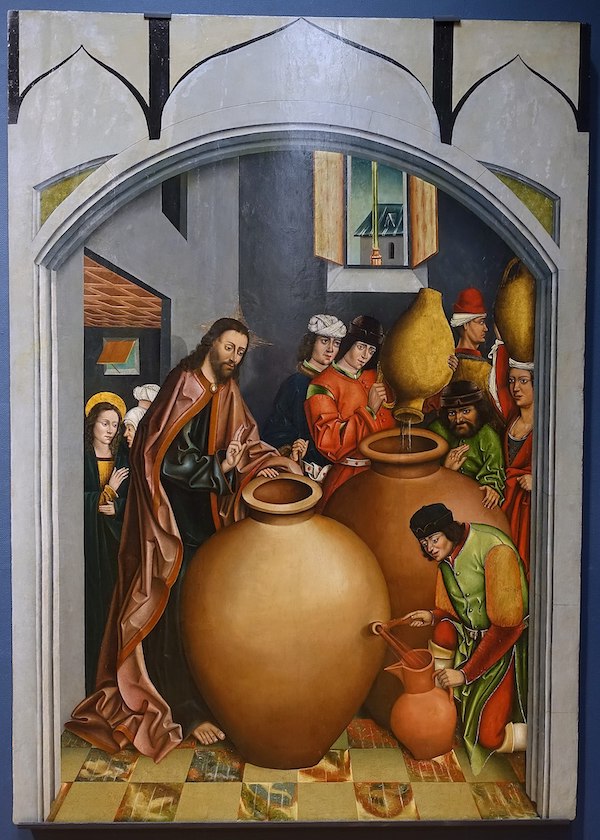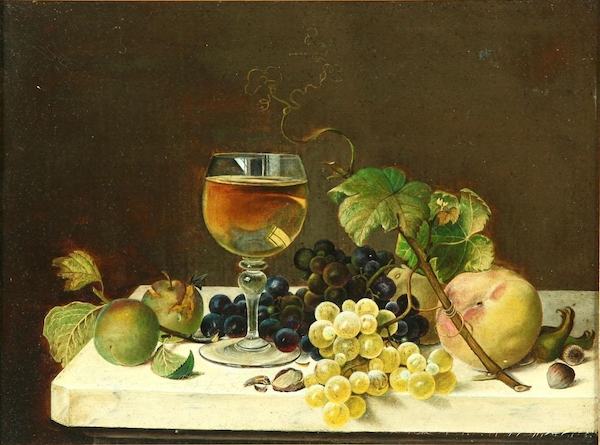

David McIlroy is Chair of Trustees at the KLC. He is a practising barrister and author of Ransomed, Redeemed, and Forgiven: Money and the Atonement.

The cup of Communion wine is not just a sip of grape juice; it is at least a symbol of Christ’s blood and in any thoughtful theology, far more than that. Drinking alcohol is always part of a wider context: a context that can be positive or negative. Understanding what that wider context is provides perspective on why at some times and in some places the church has not seen alcohol as a significant problem whilst elsewhere not drinking alcohol has been made a confessional issue.
The mediaeval monks of Europe became famous for their ability to brew beer, and both Martin Luther and John Calvin drank alcohol on a daily basis. On the other hand, American Christians are often ferociously teetotal. Why?
In the Middle Ages, the only water to drink was either rain water or river water, and the river was probably being used as the local public toilets, laundry and waste tip as well as providing the drinking water supply. There were only two ways to make the water safe from disease, to boil it or to brew it. As tea was not yet widely imported into Europe, fermenting barley or wheat in water was a simple way of making the water safe to drink and nutritious. In the Middle Ages, drinking alcohol was a health-protection measure. Children were given “small beer” (low in strength) from an early age, and sick monks had their daily ration of beer doubled.
The American experience is born out of a very different background. As the pioneers expanded into the West, they were followed by shanty-towns, in which the local tavern was also the brothel and the bookmaker’s. To buy a drink in one of those places was to risk getting involved in the evils of prostitution and gambling. Small wonder then that it was something which no Christian could be seen to get involved in.
Drinking alcohol is not an activity which can be understood in abstraction. It is always contextual. Drunk Christians are an impediment to the credibility of the gospel with Muslims who see not drinking alcohol as an article of their faith (though Muslim practice with regard to alcohol has not been uniform either). By contrast, for a Christian to refuse a nip of home-brewed raki from a Balkan or Turkic host or a glass of wine from a French or South African vintner is to insult one’s host.
Drinking alcohol is also contextual in the Bible. The wedding of Cana highlights how alcohol includes and excludes. At the wedding at Cana, not having enough wine to serve meant social disgrace. Jesus’ miraculous intervention ensured that the wedding would be remembered for years afterwards as the one where the best wine was served. The sheer amount of alcohol Jesus produced was prodigious: the equivalent of 760 bottles of wine or 4,560 glasses of wine. Even allowing for the wedding lasting for up to a week, there was a lot of wine to go round.
Elsewhere in the Bible, not drinking alcohol is a sign of commitment to God. The Rechabites were a clan grouping within Israel which did not drink wine (Jer 35:6) and whose example of commitment was used by God to shame the rest of the people of Judah for their unfaithfulness (Jer 35:12–16). Numbers chapter 6 prescribes a rule of life for Nazirites, for men and women who want to make a special vow of dedication to the Lord. Not drinking wine or any other fermented drink was one of the obligations during the period of the vow (Num 6:3). Samson was a Nazirite (Judg 3:5), albeit one who was not faithful to all the aspects of his vow. John the Baptist was also probably a Nazirite, and certainly did not drink wine or other fermented drink (Luke 1:14–15).

How do we balance the teaching of Scripture? The book of Proverbs in the Old Testament warns us: “Wine is a mocker and beer a brawler; whoever is led astray by them is not wise” (Prov 20:21). The drunkenness of Noah (Gen 9) and of Lot (Gen 19) was a source of shame. The bread and wine served by Melchizedek to Abraham was a symbol of blessing and a pre-figuring of the Eucharist (Gen 14:18). Proverbs 31 suggests that rulers should stay away from alcohol, leaving it to be a consolation to those whose lives are poor or bitter. In the New Testament, Paul says to the Ephesians: “Do not get drunk on wine, which leads to debauchery, but instead be filled with the Spirit.” (Eph 5:18, a verse which may explain the Scots’ love for whisky!) On the other hand, Paul’s advice to Timothy was “Stop drinking only water and take a little wine for your stomach’s sake” (1 Tim 5:23).
The contrast between the attitude of Jesus and John the Baptist to drinking was a cause of scandal in their own day. John the Baptist was accused of being demon-possessed because of his asceticism, while Jesus was slandered as a glutton and a drunkard (Matt 11:18). Jesus dismissed these criticisms, saying “wisdom is vindicated by her deeds” (in other translations, “wisdom is vindicated by her children”). What Jesus seems to be saying gnomically is that different followers of God may have different callings. John the Baptist’s abstemiousness was a signal of the holiness of God; Jesus’s willingness to eat and drink with tax collectors and prostitutes a witness to the all-inclusive nature of God’s love.
It seems to be that there is nothing wrong with drinking alcohol as such; but it is wrong to drink too much or to drink it for the sake of getting drunk. A little alcohol can help friends relax in each other’s company. C. S. Lewis listed two friends talking over a pint of beer as one of the three most innocent pleasures in the world, along with a household laughing together over a meal and a man reading a book that interests him. Too much alcohol leads to drink-driving, bar brawls, sexual violence, and lives damaged permanently. It would be almost unthinkable for a French church to celebrate communion using anything other than a good claret, but I attended a church in Paris which had switched to non-alcoholic grape juice so that a recovering alcoholic could drink from the same cup as everyone else.
One of the wisest comments on this subject came from Augustine of Hippo, who counselled “total abstinence is easier than perfect moderation.” The answer is: know your limit. Jesus drank wine (Luke 22:17) and yet he was without sin. But if you cannot have a glass without losing control of yourself, then you should not drink (1 Tim 3:8). If your drinking would offend others or lead them into temptation, then you should refrain (Rom 14:21). If drinking is a distraction from the service of God, then you should give it up (Titus 1:7; 2:3). But if there are contexts in which you choose to drink, do so in praise of the God who gave the joys of conviviality, complex tastes, and refreshment.